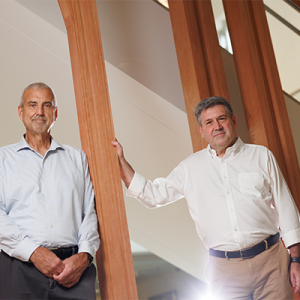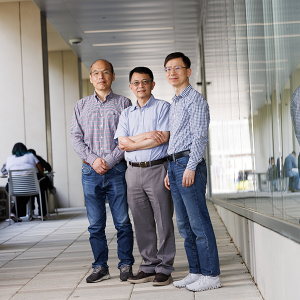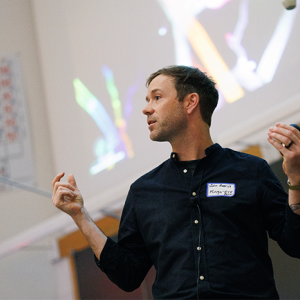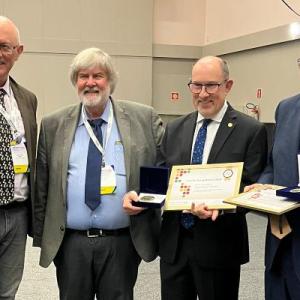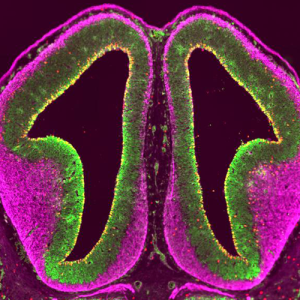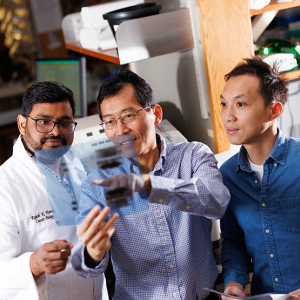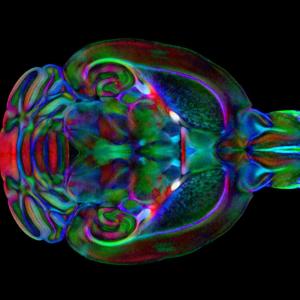Neuro-Immune Link Could Shape Brain Development, Study Finds
Long seen as defenders against disease, immune cells in the brain are now emerging as architects of early brain development.
Building Better Immunotherapy
Scientists at Duke University School of Medicine are developing a new CAR-T cell therapy that could finally help immunotherapy take aim at solid tumors. Early tests look promising, and it started with one patient’s immune system doing something extraordinary.
Breaking New Ground in Pain Relief: A Novel Approach to Non-Opioid Therapeutics
Researchers at Duke University are developing a new, non-addictive way to treat chronic pain using a natural compound in the body called adenosine. Their early results show this approach could be more effective than current medications and offer a safer alternative to opioids, with fewer side effects and no risk of addiction.
Ashley Moseman Receives Burroughs Wellcome Fund Award
Ashley Moseman, PhD, assistant professor of integrative immunobiology, has been named a 2025 recipient of the highly competitive Burroughs Wellcome Fund Investigators in the Pathogenesis of Infectious Disease award.
Learning the Language of the Brain
She’s mapping the brain in bold new ways and the ripple effects are already reaching patients. How Nanthia Suthana’s cutting-edge brain stimulation technique is shaping treatments for post-traumatic stress disorder, Parkinson’s, obsessive-compulsive disorder, and binge eating.
As the Planet Warms, Fungi Find a Way In
As global temperatures rise, fungi are evolving to survive in warmer environments—potentially breaching the human body’s natural thermal defenses. At a Duke University symposium, scientists warned that climate change may be fueling the emergence of heat-tolerant fungal pathogens, posing a growing threat to public health.
Joseph Heitman Honored with Prestigious Lucille Georg Award in Basic Science
Joseph Heitman, MD, PhD, has received the Lucille Georg Award in the basic scientist category from the International Society of Human and Animal Mycoses (ISHAM). This distinguished award recognizes lifetime achievements and outstanding contributions to the field of medical mycology.
What Makes Us Human
If 98.8% of our DNA is the same as that of a chimpanzee, what changes in the remaining 1.2% make us human?
How a Little-Known Protein Powers Energy Production and Fights Cancer
Study led by Duke School of Medicine reveals cancer’s weak spot – a protein that helps cells make energy and stops cancer from growing.
The Duke Mouse Brain Atlas Promises to Accelerate Studies of Neurological Disorders
A new, high-resolution atlas of the mouse brain will increase precision in measuring changes in brain structure and make it easier to share results for scientists working to understand neurological diseases such as Alzheimer's.

